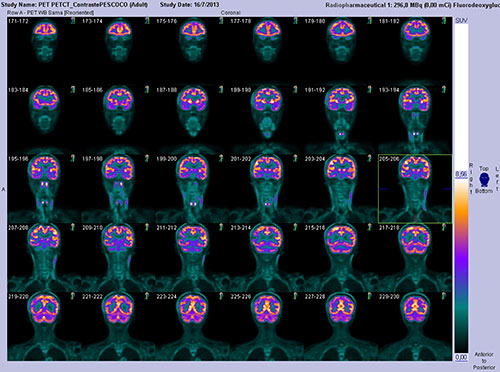Researchers at the Centre for Addiction and Mental Health (CAMH) in Toronto have found a possible link between inflammation in the brain and clinical depression. Since more than half of patients suffering from major depression disorder (MDD) do not respond to antidepressant treatment, the results from this study could lead to a modification in the treatment and standard of care for mental health issues.
The results from this study, published today in JAMA Psychiatry in an article entitled “Role of Translocator Protein Density, a Marker of Neuroinflammation in the Brain During Major Depressive Episodes”, showed that there was a 30% increase in inflammation among patients experiencing a major clinical episode.
“This finding provides the most compelling evidence to date of brain inflammation during a major depressive episode,” says Jeffrey Meyer, M.D., Ph.D., of CAMH's Campbell Family Mental Health Research Institute and senior author of the study. “Previous studies have looked at markers of inflammation in blood, but this is the first definitive evidence found in the brain.”
Dr. Meyer and his team observed the activation of a specific immune cell of the brain called microglia, which play a prominent role in the neural inflammatory response pathway. They conducted brain scans using positron emission tomography (PET), which produces a three-dimensional image of functional process within the brain, on 20 patients diagnosed with depression and 20 healthy control subjects. The results not only showed a significant elevation of inflammation in patients with depression, a trend was observed that the rates of inflammation were proportional to the level of depression, being highest among those with the most severe symptoms.
“This discovery has important implications for developing new treatments for a significant group of people who suffer from depression. It provides a potential new target to either reverse the brain inflammation or shift to a more positive repair role, with the idea that it would alleviate symptoms,” says Dr. Meyer.
Since almost 4% of the population may be currently experiencing a major depressive episode (MDE), researchers are always on the hunt to uncover new pathways to treat depression. Currently, there are no therapies that address inflammation as part of regimen to treat depression and the CAMH team believes that using anti-inflammatories as a treatment option needs to be explored further.
“This finding provides the most compelling evidence to date of brain inflammation, and more specifically microglial activation, in MDE. This finding is important for improving treatment because it implies that therapeutics that reduce microglial activation should be promising for MDE,” the paper concludes.



